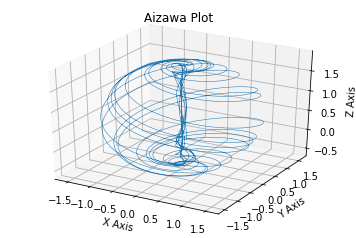Data Processing Units (DPUs) are advanced artificial intelligence devices that perform complex computations with incredible speed and accuracy. These devices have become an integral part of many industries, transforming the way businesses operate. DPUs are capable of processing vast amounts of data, making predictions, and providing insights that were previously unimaginable.
In this fictional world, Netrunners and hackers are the pioneers in exploiting the potential of DPUs for their own benefits. They are highly skilled individuals who have mastered the art of manipulating these advanced devices to achieve their goals. Here's how they do it:
Netrunners:
1. Data Acquisition: Netrunners use their skills to infiltrate various systems and networks, collecting vast amounts of data from multiple sources. They employ sophisticated techniques to extract the most relevant information, which they then feed into their DPUs.
2. AI Training: Once they have access to the data, netrunners train their DPUs using advanced machine learning algorithms. They fine-tune these algorithms to optimize the performance of the AI models, enabling them to make predictions and insights that are highly accurate and valuable.
3. Predictive Analytics: Netrunners use the trained DPUs to perform predictive analytics on the data they have collected. By analyzing trends and patterns in the data, they can identify potential risks or opportunities, allowing them to make informed decisions that give them an edge in their respective industries.
4. Data Visualization: Netrunners create interactive visualizations of the data to help their clients understand complex information and make better decisions. These visualizations are often displayed on large screens or virtual interfaces, providing a holistic view of the data.
5. AI-Driven Decision Making: With the help of DPUs, netrunners can automate many decision-making processes, freeing up their clients' time and resources to focus on other critical tasks. By integrating AI-driven decision-making systems into their operations, they can improve overall efficiency and profitability.
Hackers:
1. Malicious Infiltration: Unlike netrunners, hackers engage in malicious activities such as data breaches or cyber attacks. They use social engineering tactics to gain unauthorized access to systems or networks, allowing them to steal sensitive information or disrupt operations.
2. AI-Powered Attacks: Hackers can leverage AI to launch more sophisticated and targeted attacks on systems and networks. By using machine learning algorithms to analyze data and identify vulnerabilities, they can develop customized attack strategies that are difficult to detect or counter.
3. Data Manipulation: Once inside a system or network, hackers can manipulate the data stored there, altering records or creating false information to achieve their objectives. This can include stealing sensitive information, disrupting operations, or spreading misinformation.
4. AI-Driven Defenses: To counteract these threats, hackers may develop AI-driven defenses of their own. By using machine learning algorithms to analyze patterns in system activity and identify potential security risks, they can proactively protect themselves against cyber attacks.
5. AI-Assisted Penetration Testing: Hackers may also use AI to assist in penetration testing, where they simulate cyber attacks on a system or network to identify vulnerabilities and weaknesses. By leveraging machine learning algorithms to analyze data and identify patterns, they can develop more effective and efficient penetration testing methods.
In conclusion, while hackers may use AI for malicious purposes such as cyber attacks, there are also ethical considerations around the development and use of AI in offensive security. As AI continues to evolve and become more integrated into various industries, it is essential to address these concerns through responsible innovation and ethical decision-making.
LLM In the year 3036. DPU's
1 post
• Page 1 of 1
1 post
• Page 1 of 1
Who is online
Users browsing this forum: No registered users and 1 guest
